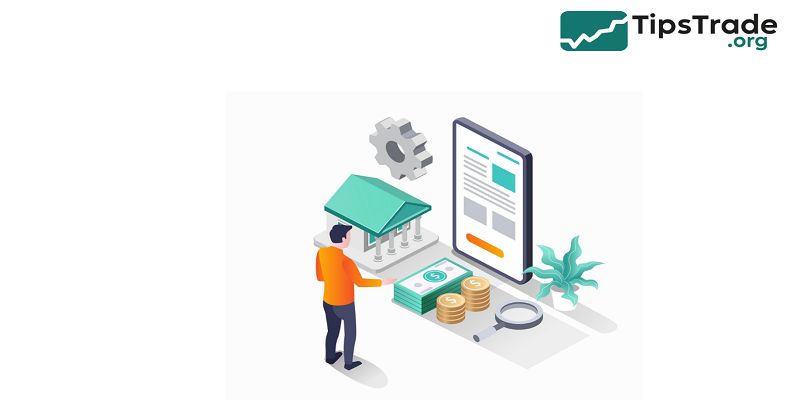Prop Firm Benefits have transformed the trading landscape. Instead of saving thousands of dollars to trade their own accounts, retail traders now have access to funded trader programs that provide company capital in exchange for profit sharing. “Prop firm benefits” has become popular because traders want to understand whether these programs are worth the time, effort, and fees.
What is a Prop Firm Benefits?

A Prop Firm is a company that provides traders with capital to trade financial markets (like forex, stocks, or futures) and allows them to keep a share of the profits. Instead of risking their own money, traders use the firm’s funds once they pass certain evaluation challenges.
Here are the main benefits of trading with a prop firm:
Access to Larger Capital
-
Traders don’t need to risk big amounts of personal money.
-
Prop firms may provide accounts ranging from a few thousand up to millions of dollars once a trader proves consistent profitability.
Profit Sharing
-
Most firms allow traders to keep 70%–90% of profits (sometimes even more), while the firm takes a smaller cut.
-
This allows skilled traders to scale earnings much faster than with their own limited funds.
Risk Management Support
-
Firms set rules (like maximum daily loss, drawdown limits) to help traders develop discipline.
-
These rules protect both the trader and the firm from blowing up accounts.
No Personal Financial Risk
-
If the trader follows rules and loses, it’s the firm’s money at risk, not the trader’s savings.
-
The only cost is usually the evaluation fee (a one-time payment to prove trading skill).
Scaling Opportunities
-
Many prop firms offer account scaling plans, meaning if you show consistent profits, they increase your trading capital automatically.
Key Benefits of Joining a Prop Firm

Access to Large Trading Capital
- The most obvious benefit is capital access. Many traders start with small accounts—$500, $1,000, or $5,000—making it nearly impossible to earn meaningful returns without taking excessive risks.
- Prop firms change this equation. By paying a one-time fee for an evaluation, traders can manage accounts of $50,000, $100,000, or even $400,000.
- This allows for professional-level position sizing and realistic profit targets.
- For example, a 2% monthly return on a $100,000 account equals $2,000, whereas the same strategy on a $1,000 account yields just $20.
- The leverage of institutional capital makes disciplined strategies much more rewarding.
- Many traders on forums like Reddit’s r/Forex confirm that capital access is the single most important advantage of prop firms.
Reduced Personal Risk
- Trading with personal funds is emotionally draining because every loss reduces your own savings.
- Prop firms reduce this stress by absorbing the risk. If you lose firm capital, you are not personally liable.
- The only potential loss is the initial evaluation fee.
- For beginners, this is a major psychological relief. Instead of worrying about blowing up a personal account, traders can focus on following rules and executing strategies.
- According to Finance Magnates (2024), “risk mitigation is a key reason retail traders prefer funded programs over traditional retail accounts.”
- Real-world example: A trader with $500 savings cannot afford to lose more than a few trades without emotional stress. With a funded $50,000 account, that same trader can apply professional risk management—such as risking only 1% per trade—without fear of losing life savings.
High Profit Splits (70–90%)
- Another attractive benefit is the profit split. Most top prop firms let traders keep 70%–90% of profits, which is significantly generous considering traders use zero personal capital.
- For instance, FTMO offers up to 90% payouts, while Fidelcrest and The Funded Trader Program also provide competitive splits.
- The math is simple: earning $10,000 in profits with a 90% split means the trader keeps $9,000, and the firm takes $1,000.
- This arrangement incentivizes traders to stay disciplined while rewarding performance.
- The credibility of these payouts has been confirmed by traders who share payment proofs on Trustpilot and YouTube.
- Unlike retail brokers where traders may worry about slippage or hidden costs, prop firms have reputations to maintain, and delays in payouts often lead to community backlash.
- Thus, most established firms ensure reliable, timely payments.
Scaling Plans for Long-Term Growth
Prop firms are not just about quick profits—they also encourage career growth through scaling programs. Many firms increase account sizes for traders who demonstrate consistent profitability. For example:
- FTMO increases account size by 25% every four months of positive performance.
- The Funded Trader Program allows scaling up to $600,000.
- SurgeTrader offers accounts up to $1,000,000 instantly.
- Scaling is important because it rewards discipline over time. Instead of constantly repeating small challenges, traders can build a career pathway to managing six- or seven-figure accounts.
- According to interviews with funded traders, scaling has been the difference between treating trading as a hobby versus a full-time profession.
Professional Trading Environment & Rules
- One underrated benefit of prop firms is the structured environment they provide.
- Evaluation rules—such as maximum daily drawdown, profit targets, and consistency requirements—force traders to adopt professional habits.
These rules simulate real hedge fund conditions. Traders learn to:
- Avoid overleveraging.
- Stick to risk management strategies.
- Control emotions during volatility.
For example, FTMO’s 5% daily loss rule may frustrate aggressive scalpers, but it teaches risk control. In the long run, these guardrails help traders survive in real markets.
Many experienced traders admit that without prop firm rules, they would overtrade and lose discipline.
Educational & Supportive Benefits

Risk Management Training
- Prop firms emphasize risk management, often more than profit-making.
- Traders quickly learn that consistent survival is valued above big wins.
- By enforcing rules like daily loss limits, prop firms teach traders to think like risk managers rather than gamblers.
- This mindset shift is a major educational benefit.
- A funded trader shared on Forex Factory: “I learned more about risk from failing three challenges than from any trading course.” Prop firms essentially provide real-world risk training at a fraction of the cost of formal education.
Trading Analytics & Performance Tracking
- Many prop firms provide advanced analytics dashboards that track metrics such as win rate, average risk-to-reward ratio, and maximum drawdown.
- For instance, FTMO offers a Performance App that analyzes every trade.
- Such feedback helps traders identify strengths and weaknesses. Unlike personal accounts where tracking is optional, prop firms make performance analysis mandatory.
- This structure pushes traders to refine strategies scientifically, which accelerates skill development.
Community & Mentorship Opportunities
- Some firms foster trader communities, offering Discord groups, mentorship calls, or educational webinars.
- Being part of a funded program connects traders with like-minded individuals, reducing the loneliness often associated with retail trading.
- According to Investopedia, community support improves trading psychology by “providing accountability, reducing isolation, and fostering continuous learning.” A beginner trader might gain insights from a veteran who has passed multiple challenges.
- This peer-to-peer support is one of the most overlooked but powerful prop firm benefits.
Psychological of Trading with a Prop Firm

Discipline & Rule-Based Trading
- Trading with personal funds often leads to reckless behavior—revenge trading, overleveraging, or gambling.
- Prop firms impose strict rules that enforce discipline. Traders learn that breaking rules results in losing their funded account.
- This discipline mirrors institutional trading. Over time, traders internalize habits like position sizing, journaling, and patience.
- A trader on Reddit admitted that prop firm rules forced him to abandon risky scalping and adopt swing trading, which improved long-term profitability.
Confidence from Structured Environment
- For many, the structure of prop firm programs builds confidence.
- Knowing that a firm trusts you with $100,000 or more instills a sense of professionalism. Success in challenges boosts belief in one’s abilities.
- Psychologically, this is critical. Traders who fail repeatedly with personal accounts often regain confidence after earning payouts from a prop firm.
- These small wins validate their skills and motivate them to keep improving.
Lower Emotional Stress Compared to Own Capital
- The fear of losing personal money is one of the greatest obstacles in trading psychology.
- By removing this burden, prop firms create a less stressful environment. Traders can focus on executing strategies instead of worrying about rent money.
- A case study on Finance Magnates (2023) revealed that traders with funded accounts reported 30% lower stress levels compared to those using personal funds.
- This benefit cannot be overstated—mental clarity is as important as technical skills in trading success
Comparison – Prop Firms vs Self-Funding
| Feature | Prop Firms | Self-Funding |
| Starting Capital | $10,000–$1,000,000 (funded) | Limited by personal savings |
| Risk to Trader | Evaluation fee only | 100% personal capital |
| Profit Split | 70–90% kept by trader | 100% kept, but on small base |
| Growth Potential | Scaling plans up to 7 figures | Limited unless self-funded |
| Psychological Stress | Lower (no personal losses) | Higher (own money at risk) |
This comparison highlights why prop firms have become so attractive. While self-funding offers full profit retention, most retail traders cannot grow small accounts fast enough. Prop firms solve this by providing immediate access to capital with manageable risk.
Potential Drawbacks to Keep in Mind
While benefits are clear, traders should also be aware of limitations:
- Evaluation Fees: Repeated failures can become costly.
- Strict Rules: Violating a daily drawdown limit can result in instant disqualification.
- Firm Risks: Not all prop firms are trustworthy. My Forex Funds’ 2023 collapse showed that even large firms can face regulatory issues.
Trust is crucial. Always check reviews, community feedback, and payout histories before committing to a firm. A balanced view of both benefits and risks ensures traders make informed choices.
Real Trader Experiences with Prop Firms

Real experiences highlight the true value of prop firms:
- A trader on Trustpilot shared he earned $8,000 in his first FTMO payout, calling it “life-changing compared to trading my $1,000 account.”
- Another trader admitted failing four challenges but said the process taught him discipline that improved his self-funded trading.
- On Reddit, one futures trader praised Topstep for its supportive community and transparency, stating it felt like “being part of a professional desk.”
These stories illustrate that while not every trader succeeds immediately, the learning and growth from prop firms often outweigh the costs.
Conclusion
The benefits of prop firms are undeniable: access to large capital, reduced personal risk, generous profit splits, professional structure, and long-term growth opportunities. Traders gain not only financial resources but also education, discipline, and confidence that prepare them for a professional trading career. The article above from Tipstrade.org has just provided you . We hope that you find it useful. Wishing you successful trading!

